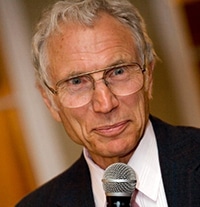 By DON NEEPER
By DON NEEPER
Formerly of Los Alamos
COVID-19 shocked the complex system that is our society. Our collective reactions to COVID might be as dangerous as the virus itself.
Society is one example of what scientists call a complex system—many actors (in this case people and institutions) altering individual moves based on responses of the other actors. Complex systems can have emergent system-wide patterns, like the schooling of fish or the fluctuations of the stock market.
Systems become complex as the number of contacts between actors increases. Within two human generations, the number of each person’s contacts increased by ten- to a hundred-fold. The resulting complexity increased by a factor a hundred to ten thousand. That’s why older folks say life isn’t simple any more.
The Santa Fe Institute gathers experts and students to study how a complex society reacts to events—such as social distancing as a reaction to COVID-19. The scientific knowledge of complex systems could enable more effective social decisions, including responses to pandemic—if that knowledge were used.
The COVID epidemic proceeds by transmission between individuals. The transmission is simple. The social responses are complex. Reducing the transmission of COVID also reduces the transmission of goods and services, otherwise known as the economy. Which services can we reduce? And then what happens?
Wearing of masks reduces the transmission of COVID, but mask-wearing became a political statement. Proponents of the bare face claim that masks and social distancing are contrary to constitutional freedoms. However, the term “freedom” appears in the Constitution only once, where it relates to speech, religion, the press, peaceable assembly, and the petition for redress from grievances. The Constitution does not promise freedom from grievances, only the right to petition. If the mask is required by law, you have a right to petition against it—while wearing it.
Without firm leadership, the arguments bring COVID transmission into the complexity of politics. Mixing the pandemic into politics can emerge as wider social conflict.
Conflict occurs when two actors presume different social rules for the same behavior. America doesn’t need another conflict. Our different sub-cultures have different grammar, different expectations, and different rules of behavior. This results in great disparities of opportunity, income, and social justice. These disparities can amplify a local conflict, as when police question a person of different culture, or an usher requests a patron to wear a mask.
Political conflict prevents development of common-sense logic while two sides blame each other. Blame is a method of being right by making someone else wrong, a process that generates dictatorships, justifies oppression, and starts wars.
The facts of COVID transmission are simple. The politics of the transmission are complex, divisive, and dangerous.
Editor’s note: Don Neeper worked on weapon theory, solar buildings and environmental restoration at Los Alamos National Laboratory. Visit his website at www.neeper.net.

